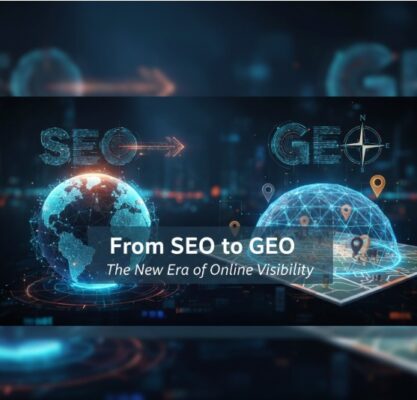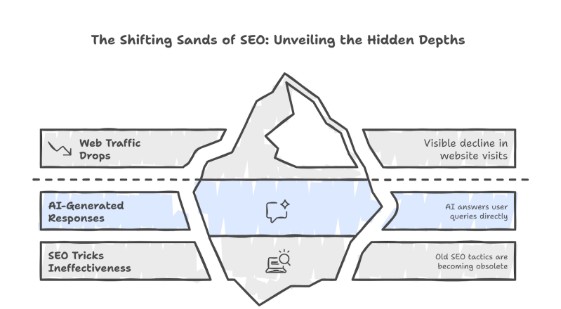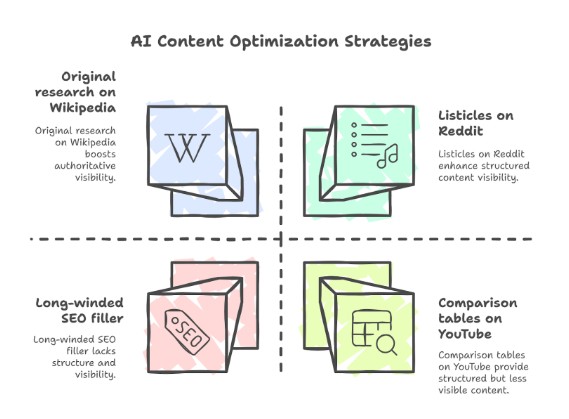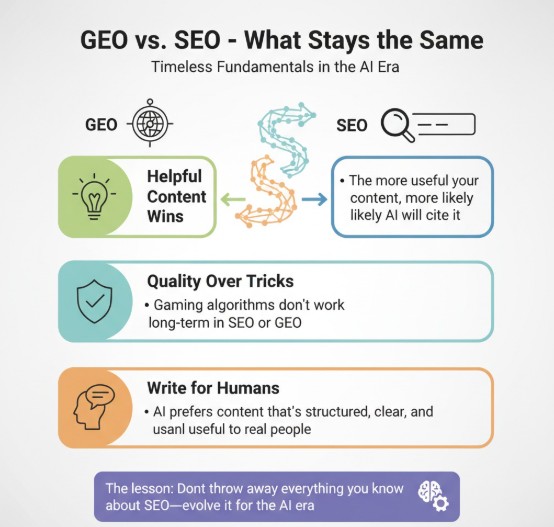Miami's First AI-GEO Specialists
From SEO to GEO: The New Era of Online Visibility
Originally published: August 2025 | Updated: September 2025

For over two decades, SEO (Search Engine Optimization) has been the guiding force of online marketing. Businesses of all sizes learned how to play by Google’s rules—stuffing keywords, building backlinks, and creating content designed to rank.
Entire industries were built around helping websites climb search results, and SEO shaped how nearly every piece of online content was written.
However, the rules are now changing. AI-powered chatbots like ChatGPT, Google AI, Gemini, and Perplexity have entered the scene, and they’re not just guiding users to websites anymore—they’re giving direct answers. Instead of ten blue links, people get neatly packaged responses.
This shift means that SEO alone is no longer enough. To remain visible, businesses need a new playbook. Enter GEO: Generative-Engine Optimization.

SEO was once the lifeblood of the internet. Companies spent millions ensuring their sites ranked well in Google’s search results.
Headlines, product descriptions, blog posts—even recipes—were written with Google’s algorithm in mind.
But with the rise of AI-generated responses, traffic patterns have shifted dramatically:
The old SEO formula—create content for Google, rank high, get traffic—is breaking down.
GEO, or Generative-Engine Optimization, is the evolution of SEO. It’s about ensuring your brand is cited and referenced in AI-driven answers, not just linked in search results.
In other words, instead of competing for page-one rankings, the goal is to be the trusted source AI tools use when generating responses.
AI has fundamentally changed how users search:
Simply put: if your content isn’t designed to be AI-citable, your business risks being left out.

AI doesn’t want fluff. It wants facts, clarity, and bite-sized information. That means:
Chatbots love structured content:
This type of content is easier for AI to summarize and cite.
AI engines are trained on publicly available data. If you want to show up in answers, you need visibility in places AI scrapes regularly:
AI doesn’t just pull generic text—it looks for authoritative sources. Content that performs well in GEO includes:
By providing unique insights, you increase your odds of being cited instead of ignored.
Just as SEO spawned an entire industry, GEO is creating its own ecosystem of tools. These platforms promise to:
For example, new analytics companies run thousands of queries across AI chatbots to measure brand visibility. Others use AI to generate structured, schema-rich content that’s easier for models to ingest.
Caution: Some “GEO hacks” are scams. Automated backlink generators, invisible prompts, or keyword stuffing for AI rarely work. Stick to credible strategies.
One concern many businesses face is whether to use AI to write their content. The short answer: yes—but responsibly.
Search engines and AI platforms can detect low-quality, machine-generated spam and penalize it. That’s why the best approach is responsible augmentation:
Think of AI as an assistant, not a replacement.

While the tools are changing, some fundamentals remain timeless:
The lesson: don’t throw away everything you know about SEO—evolve it for the AI era.
Looking ahead, GEO will define how businesses get found online:
Still, opportunities exist for those who adapt early. Just as SEO created winners and losers, GEO will separate brands that evolve from those that fall behind.
SEO isn’t dead—but it’s evolving. The web is shifting from being written for search engines to being written for AI engines.
To stay visible in this new era, businesses must:
The brands that embrace GEO now will be the ones still seen, still trusted, and still winning in the AI-driven future.
The question isn’t “Will SEO survive?” but rather “How will your brand adapt to GEO?”
What is Generative-Engine Optimization (GEO)?
Generative-Engine Optimization (GEO) is the process of optimizing your brand and content so AI chatbots and generative search engines cite and reference you directly in their answers.
How is GEO different from SEO?
SEO focuses on ranking higher in search engine results, while GEO ensures your content is structured, citable, and visible within AI-generated responses.
Why is GEO important for businesses in 2025?
Because AI platforms often answer queries without sending traffic to websites, GEO ensures your brand is still included and visible where customers are getting answers.
What type of content works best for GEO?
Structured content such as FAQs, lists, comparison tables, and original insights works best because AI engines prefer clear, concise, and fact-driven sources.
Can I use AI tools to create GEO content?
Yes, but responsibly. AI can accelerate research and drafting, but human oversight is crucial to ensure accuracy, originality, and brand consistency.